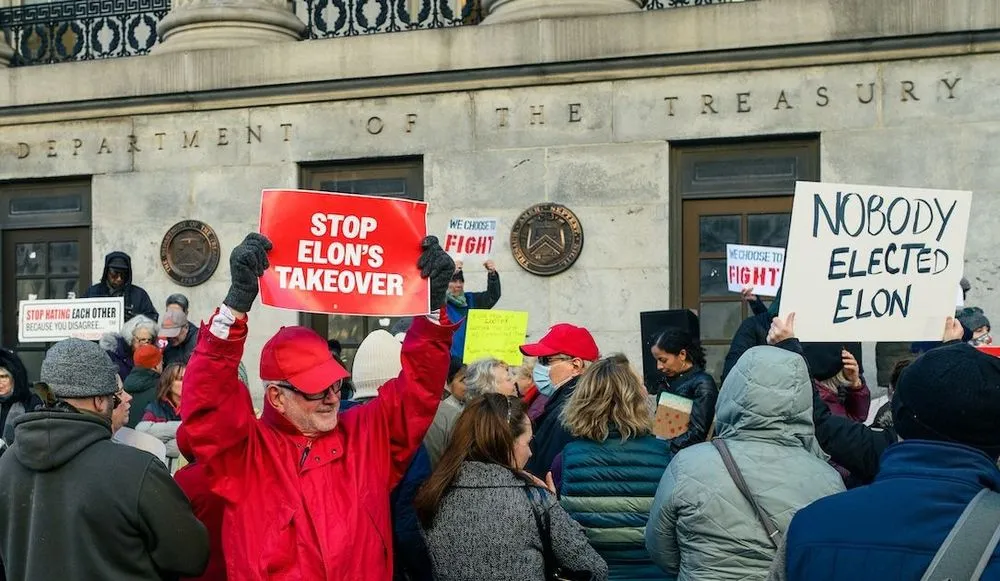States prepare privacy lawsuit against DOGE over access to federal data
More than a dozen state attorneys general on Thursday said they plan to sue to stop Elon Musk and other members of his team from continuing to access sensitive payment systems that house reams of data belonging to millions of people.
The 14 attorneys general — including those representing large states like California and New York — released a statement saying that President Donald Trump “does not have the power to give away our private information to anyone he chooses, and he cannot cut federal payments approved by Congress.”
Musk’s so-called Department of Government Efficiency (DOGE) — a group of “special government employees” seeking drastic federal spending cuts at the request of Trump — have in recent days reportedly accessed or sought to access government databases at several federal agencies, including the departments of Treasury, Education and Labor, and the Centers for Medicare and Medicaid Services.
The attorneys general appear to be focused on DOGE’s work at Treasury, where they said Musk and his staffers are unlawfully accessing payment systems that contain not only individuals’ data, but also states’ bank account data and other sensitive information.
“As the richest man in the world, Elon Musk is not used to being told ‘no,’ but in our country, no one is above the law,” the statement said.
“This level of access for unauthorized individuals is unlawful, unprecedented and unacceptable.”
While there is no broad federal privacy law, several states have laws that make DOGE’s data practices illegal. Some experts have called DOGE’s access a data breach.
The brief statement did not say when, where or against exactly whom the attorneys general plan to file their suit but did make clear that their goal is stopping Musk and DOGE from continuing to access the Treasury payment systems.
The coalition also includes attorneys general from Arizona, Colorado, Connecticut, Delaware, Hawaii, Illinois, Maine, Maryland, Minnesota, Nevada, Rhode Island and Vermont.
Trump won Arizona and Nevada in the 2024 election.
Spokespersons for several of the attorneys general did not respond to requests for comment seeking more details.
The attorneys generals’ announcement comes a day after Treasury agreed to temporarily block additional members of DOGE from accessing its payment systems.
That ruling came in response to a lawsuit filed by a host of union groups, who have said the payment systems include a range of sensitive data, including bank account, Social Security and credit card numbers belonging to millions of Americans.
Other data the lawsuit claims is housed in the Treasury system includes date and location of birth; physical and electronic mailing addresses; personal cell phone numbers; bank routing numbers; and household income, assets and liabilities.
Name and contact information of employers; driver’s license numbers; and user names and passwords are also stored in the systems, the lawsuit says.
Suzanne Smalley
is a reporter covering digital privacy, surveillance technologies and cybersecurity policy for The Record. She was previously a cybersecurity reporter at CyberScoop. Earlier in her career Suzanne covered the Boston Police Department for the Boston Globe and two presidential campaign cycles for Newsweek. She lives in Washington with her husband and three children.



